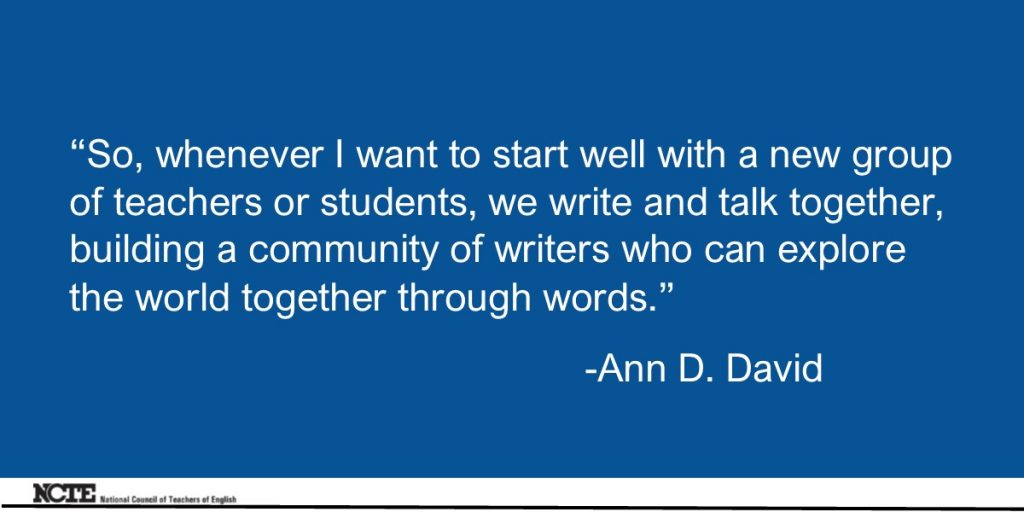This post is written by NCTE member Ann David.
If you listen closely, you can hear it. That big, deep breath before we plunge into the cold lake of back-to-school. I present back-to-school workshops for teachers, and these workshops are often when teachers are dipping their toe in, testing the waters of a new school year. I put a lot of pressure on myself to get it right. To start well, I use the same strategies I use as a college professor and used as a high school English teacher. These strategies are grounded in my beliefs, and NCTE’s beliefs, about what it means to teach writing well.
- Write as soon as possible, if not first. If the teachers and I start by writing, then that’s what our time together is about. I get it, there’s a great temptation (sometimes a mandate) to start with the schedule or norms or rules or assessments or forms or . . . or . . . or . . . . But I want my time with teachers or students to be about writing, so we start there. Usually quickly and sometimes short, we write—without a prompt—whatever words need to be on the paper.
- From the start, I write with the people in the room—teachers or students. My fellow writers can see my pen tapping and me staring off into space and they know that all writers get stuck sometimes. I can show them my writing on a document camera and struggle to not apologize because it is too short and I crossed stuff out, so they can see that all writers start with drafty drafts. And they can see when I get lost in writing and forget to stop us or when I’m proud of a sentence or turn of phrase.
- We talk about our writing from the beginning. We talk around our still-unformed creations—these texts we build out of words and experience and memory and other texts and paper and pens and notebooks. By talking, we build our relationships with one another out of our own and one another’s words. These relationships are the way we get through the moments when the writing gets hard or the revision is not working. Or when we figure it out and just have to share how good it sounds.
Admittedly, these strategies are not original, but good things never go out of style. Whether I’m working with teachers or students, the pressure to cover content or standards often pushes aside these habits of mind that are, after all, at the heart of our discipline. So, whenever I want to start well with a new group of teachers or students, we write and talk together, building a community of writers who can explore the world together through words.

Dr. Ann D. David is an assistant professor of education at the University of the Incarnate Word, and a co-director of the San Antonio Writing Project. She’s been a writer since before memory and currently blogs at anndavid.org.

